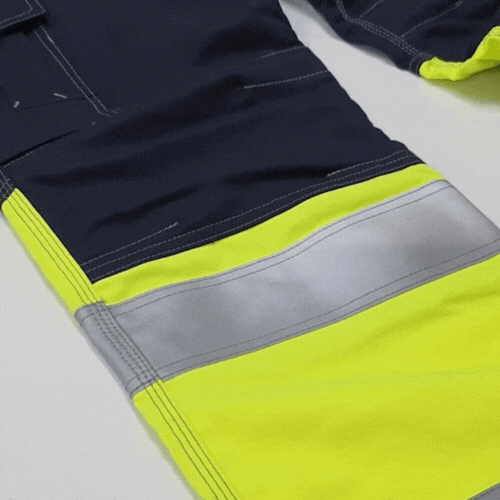Building on our previous discussion, an ESD uniform is a complete set of clothing designed to protect electrostatic discharge (ESD) sensitive items from the static electricity generated by a person’s body and clothing.
While an “ESD smock” is a common single piece, an ESD uniform implies a head-to-toe ensemble used in the most critical environments.
Core Purpose
The primary goal of an ESD uniform is to enclose the operator in a shielded, static-dissipative environment. It prevents the static charge built up on a person’s regular clothes (like underwear, socks, or shirts) from influencing or discharging onto sensitive components.
Key Components of a Full ESD Uniform
A complete ESD uniform typically includes:
-
ESD Smock, Jacket, or Lab Coat: The core upper-body garment, often worn over regular clothes.
-
ESD Trousers/Pants: These are crucial because a standard smock only covers the top half. Trousers prevent static from pants legs from coming near sensitive work areas.
-
ESD Foot Grounding: This is a critical part of the system. It can be:
-
ESD Shoes: Special shoes with conductive or dissipative soles.
-
ESD Heel Straps / Toe Grounders: Straps worn over standard shoes that make contact with ESD flooring.
-
-
ESD Wrist Strap: While not part of the “clothing,” it is an non-negotiable part of the system. It provides the most direct and reliable path to ground when the operator is seated at a workstation.

anti static clothing/ESD clothing
In highly sensitive environments like cleanrooms (for semiconductor manufacturing, medical devices, etc.), the uniform also includes:
-
ESD Coveralls / Bunny Suits: A single-piece garment that covers the entire body from neck to ankles, minimizing particle shedding and providing full ESD protection.
-
ESD Head Covers (Bouffants): To contain hair, which can generate significant static.
-
ESD Gloves: To prevent direct skin contact and static generation from handling.
How the “System” Works Together
An ESD uniform is ineffective if it’s not part of a grounded system. Here’s how the components connect:
-
The fabric of the uniform (smock, trousers, coveralls) is woven with conductive threads, creating a shielding “cage” around the wearer.
-
This conductive cage must be connected to ground. This connection happens in two main ways:
-
Through the Skin via a Wrist Strap: The uniform has conductive snaps or cuffs that touch the wearer’s skin. The skin is then connected to ground via the wrist strap.
-
Through the Floor via Foot Grounding: The wearer’s skin contacts the uniform, and the uniform’s trousers contact the ESD shoes. The shoes then make contact with a conductive ESD floor, creating a path to ground.
-
Where are Full ESD Uniforms Required?
You will find full ESD uniforms in the most static-sensitive and contamination-sensitive industries:
-
Semiconductor and Microchip Fabrication
-
Aerospace and Defense Electronics Assembly
-
Medical Device Manufacturing (especially implantable devices)
-
High-Reliability Electronics Manufacturing (for automotive, servers, etc.)
Summary: Key Takeaways
-
More than a Smock: An ESD uniform is a complete system of garments designed for full-body protection.
-
System-Based: It only works when all components (clothing, footwear, wrist strap) are functionally connected and the user is properly grounded.
-
Highest Level of Protection: It’s used in the most critical environments where even a single, undetectable ESD event can cause catastrophic or latent damage worth thousands of dollars.
In essence, if an ESD smock is a rain jacket, a full ESD uniform is a head-to-toe waterproof suit for working in a hurricane. It provides the highest level of assurance against static damage.
For some insightful reads, we’ve curated a list of recommended articles just for you:
- How do I find a product manufacturer in China?
- How to find cheap manufacturers in China? A guide to avoid pitfalls
- How to complete your first purchase of workwear in China safely and efficiently
- Custom uniforms for Small business
- Choosing the Best Industrial Work Suit
- Ultimate Guide: Best Wholesale Work Clothes in China
- Cut & Sew Customization
- Logo Customize Clonthing Manufacturer
- The Ultimate Guide to Finding Reliable Wholesale Work Clothes Factories in China
- Importing Clothes from China Guide
Can’t find what you’re looking for? Feel free to contact us. We’re here to help 24/7.





